Pansy Flowers – A unique and captivating flower that draws attention with its stunning five-petaled blooms. Don’t miss out on this comprehensive guide as we unravel the mysteries behind this fascinating flower, covering everything from its characteristics, symbolism, to detailed planting and care instructions.
1 What is the Pansy Flower?
Origin and Significance of Pansies
Pansies, scientifically known as Viola tricolor, are native to Northern Europe and were introduced to Vietnam from France in the early 20th century. These flowers have since adapted well to the cool and temperate climates of regions such as Da Lat, Ba Vi, Tam Dao, and the Central Highlands.
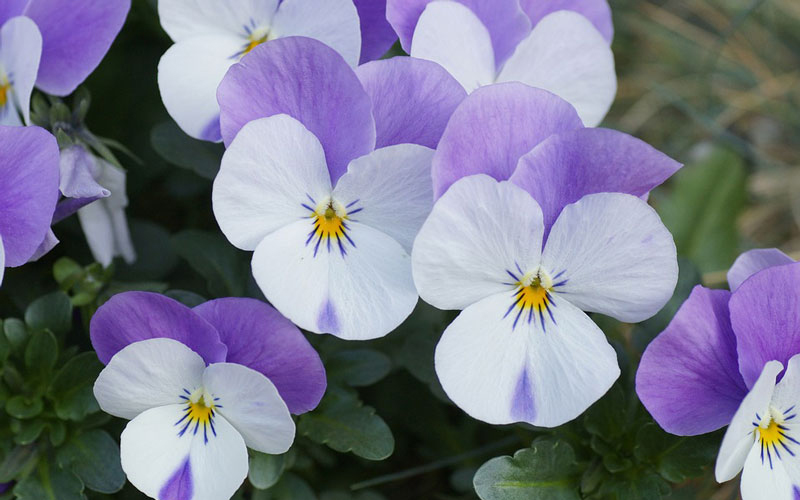 Pansies – Flowers that Resemble Beautiful Butterflies
Pansies – Flowers that Resemble Beautiful Butterflies
Commonly known as pensee, pansy, or Viola tricolor, the name “pansy” is derived from the French word “pensée,” meaning thought or remembrance. In Vietnamese, they are often referred to as hoa bướm (butterfly flower), due to their resemblance to colorful butterflies perched on branches. These flowers come in a vibrant array of colors, including yellow, blue, orange, red, white, purple, and more.
Symbolism of Pansies
In folklore, the name “Pensée” is attributed to a diplomatic and thoughtful envoy. The flower’s name in French, pensée, also conveys yearning, remembrance, and contemplation.
When a man presents a woman with pansies, it signifies his romantic intentions and hopes. Conversely, when a woman accepts these flowers, she subtly expresses, “I am expectantly waiting.”
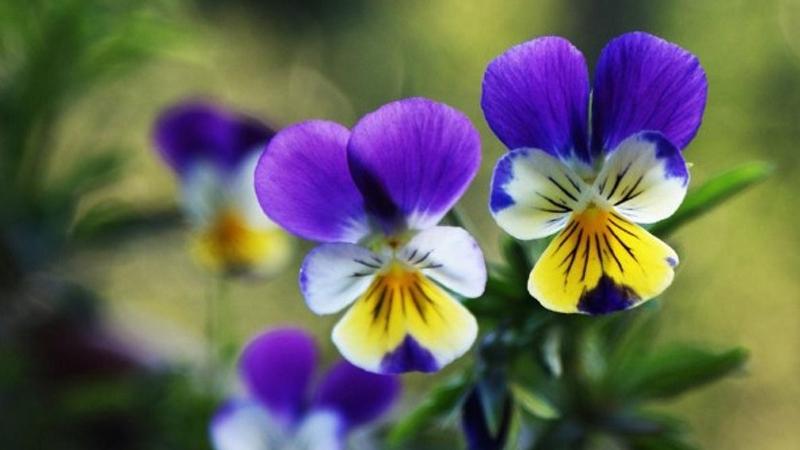 The Symbolic Meaning of Pansies
The Symbolic Meaning of Pansies
Pansies are also affectionately nicknamed “Heartsease” as they are believed to possess magical properties in matters of the heart. They are said to heal broken hearts, soothe emotional wounds, and ensure reciprocated love when kept close.
Each color of the pansy’s vibrant palette carries a distinct message in the language of love:
- Pink signifies “I will never forget you.”
- Red indicates a heart that beats wildly for you.
- White implies that you are gentle and adorable.
- Yellow conveys a polite refusal.
- Purple expresses unspoken longing and remembrance.
- Single-colored flowers suggest that we are of the same mind.
- Flowers with colored edges convey the sad message, “We cannot be together.”
Characteristics and Classification of Pansies
Pansies are herbaceous plants with dark stems that can grow up to 15-20 cm in height. Each flower typically has a diameter of 3 cm, although they can reach up to 8 cm when grown under optimal conditions. Pansies have a relatively short lifespan of about a year, blooming from November to May.
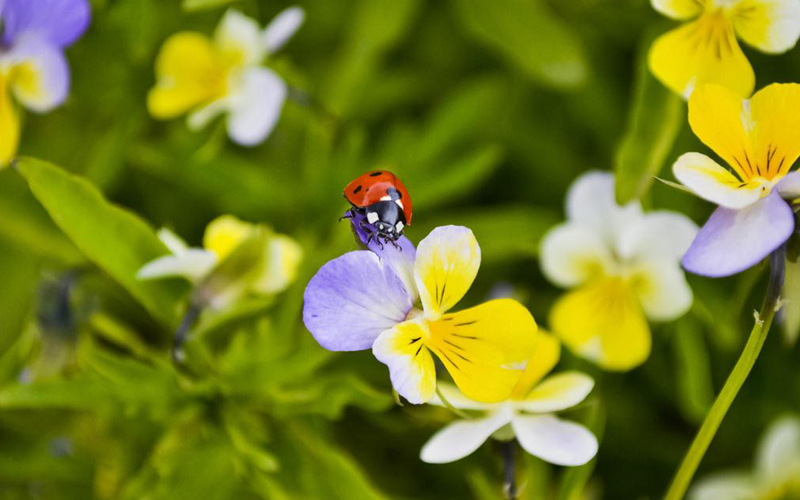 Pansies with Their Distinctive Five-Petaled Flowers
Pansies with Their Distinctive Five-Petaled Flowers
The most distinctive feature of pansies is that each flower has five petals, with two petals slightly overlapping, two opposite petals, and a fifth petal with a spur protruding from the center. This unique arrangement creates an eye-catching and captivating appearance not found in any other flower.
2 Benefits of Pansy Flowers
With their distinctive beauty, pansies are a popular choice for decorating balconies, front porches, and gardens, adding a splash of color and vibrancy to any home.
Additionally, pansies are often selected for landscaping in parks, along roadsides, and in flower beds to enhance the aesthetics of urban spaces.
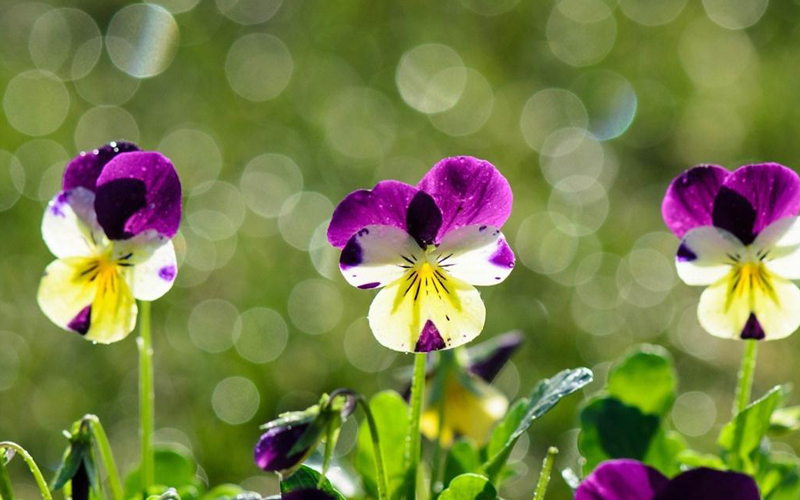 Pansies Used to Beautify Homes and Urban Landscapes
Pansies Used to Beautify Homes and Urban Landscapes
3 Planting and Caring for Pansies
Planting Pansies at Home
Pansies are typically propagated by seed-sowing. The seeds will germinate within 5-7 days when provided with the ideal temperature range of 20-30°C. The best time to plant pansies is from July to September each year.
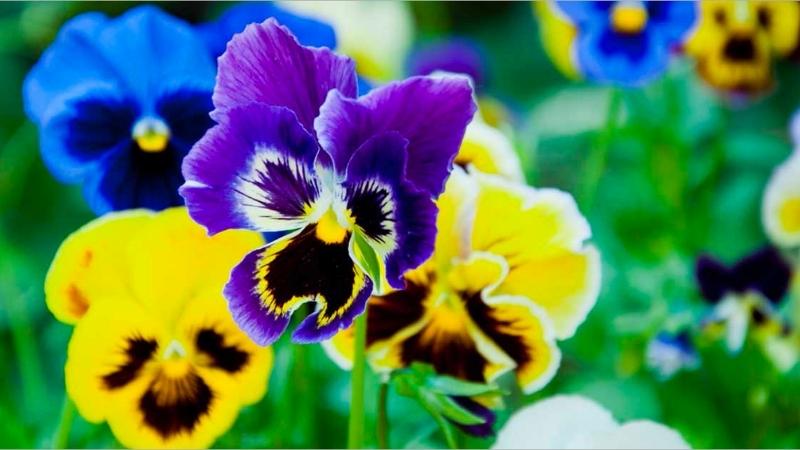 Guide to Planting Pansies at Home
Guide to Planting Pansies at Home
Caring for Pansies
Once the seeds have produced 2-3 leaves, it’s time to transfer them to larger pots or adjust the soil composition to a mix of 6 parts akadama soil and 4 parts peat.
As the seedlings continue to grow and develop 3-4 leaves, it’s best to repot each seedling individually for easier care.
To encourage larger and more vibrant blooms, apply a layer of well-rotted manure at the base of the plant when buds start to form. While pansies are relatively resistant to fungal diseases, they are susceptible to pests like brown aphids in April, so regular inspections and pest control treatments are necessary.
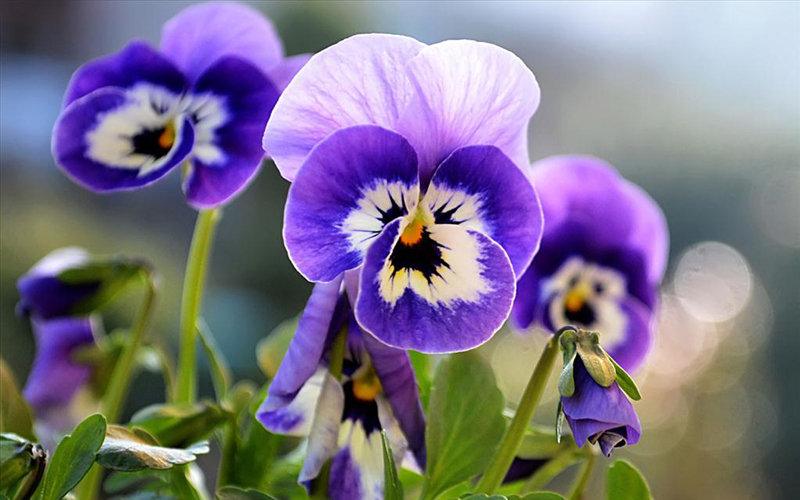 Pansies Thrive with Adequate Watering and Sunlight
Pansies Thrive with Adequate Watering and Sunlight
During the flowering period, maintain regular watering and remove wilted flowers and dry leaves to stimulate new growth.
Pansies are relatively low-maintenance, but they do require frequent watering to maintain adequate moisture levels. It is recommended to water them once a day in the early morning using a spray bottle to create a fine mist, rather than pouring water directly onto the roots.
Notes on Planting and Caring for Pansies
As sun-loving and water-adoring plants, pansies thrive in sunny locations with well-drained, nutrient-rich, and airy soil.
For optimal growth, consider using a mix of akadama soil (commonly used for bonsai) and peat at a 1:1 ratio. Alternatively, you can substitute peat with peat moss.
Avoid planting pansies in shady or overly shaded areas as this will result in dull and lackluster blooms.
4 10 Beautiful Images of Pansy Flowers
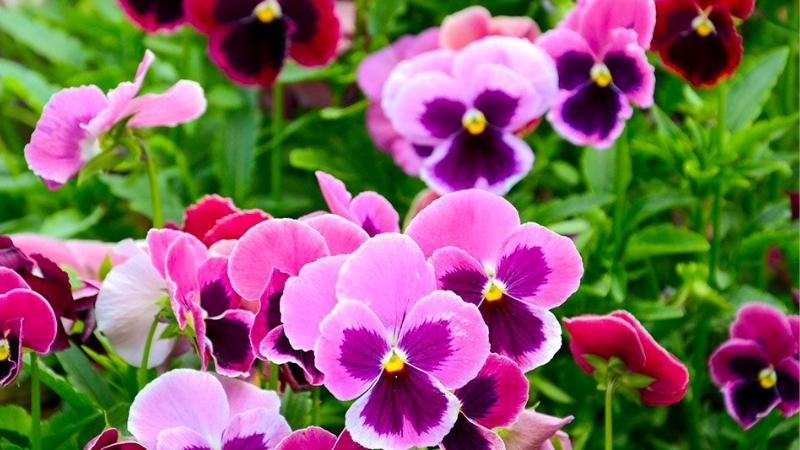 Pansies in Blush Pink
Pansies in Blush Pink
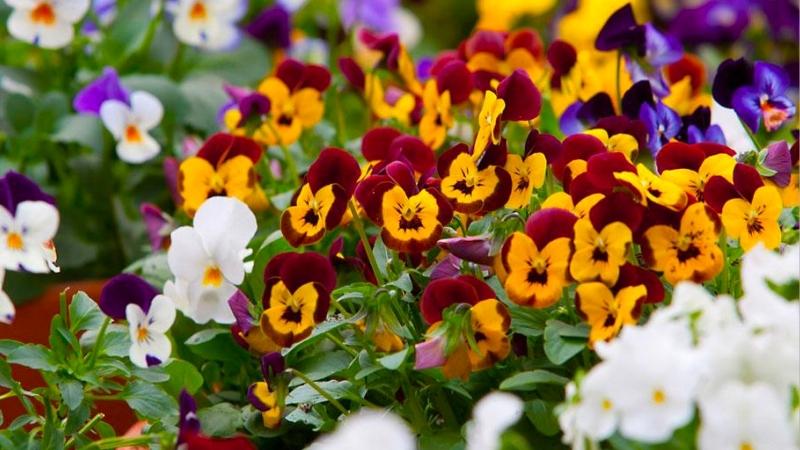 Pansies in a Burst of Vibrant Colors
Pansies in a Burst of Vibrant Colors
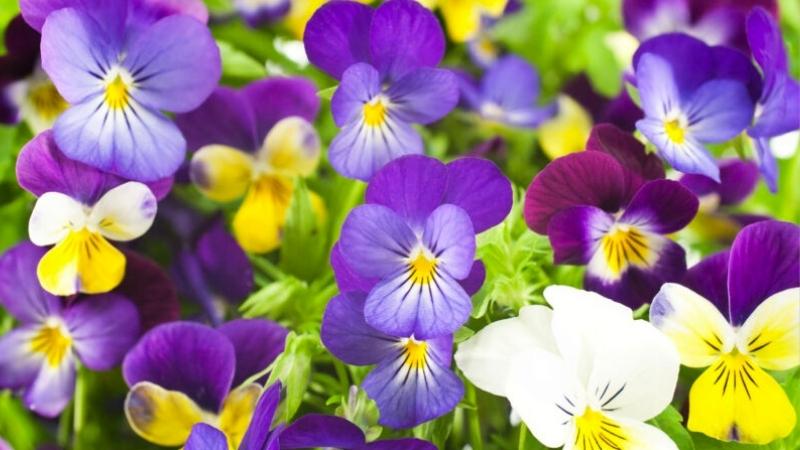 Pansies in a Rainbow of Colors
Pansies in a Rainbow of Colors
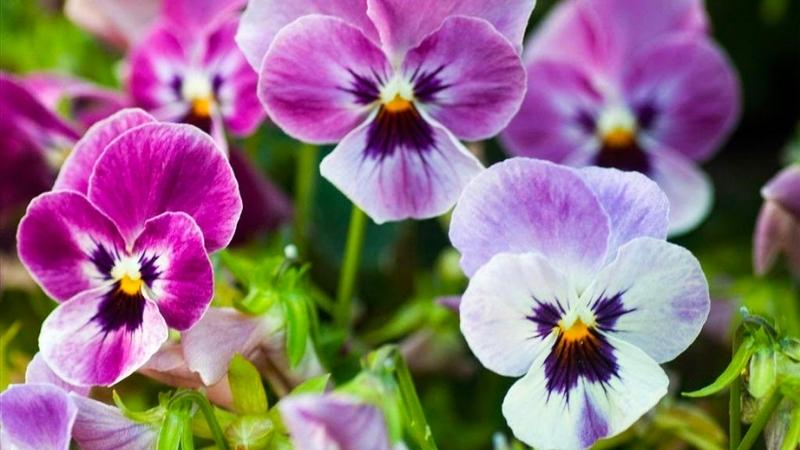 Pansies Resembling Delicate Butterflies
Pansies Resembling Delicate Butterflies
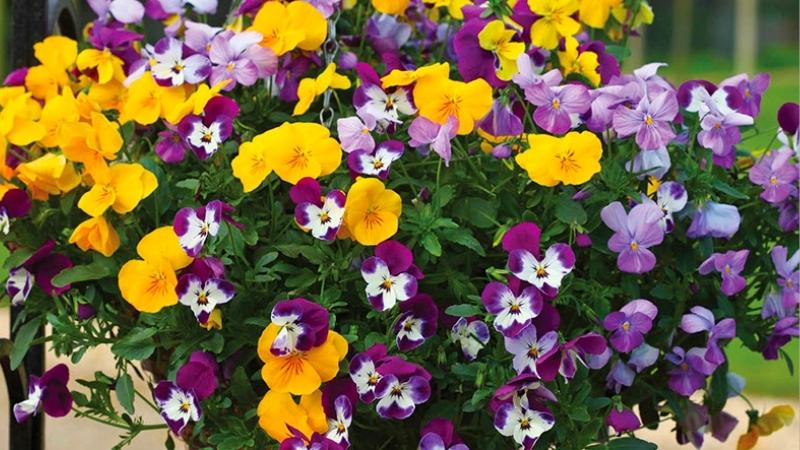 A Charming Pot of Pansies
A Charming Pot of Pansies
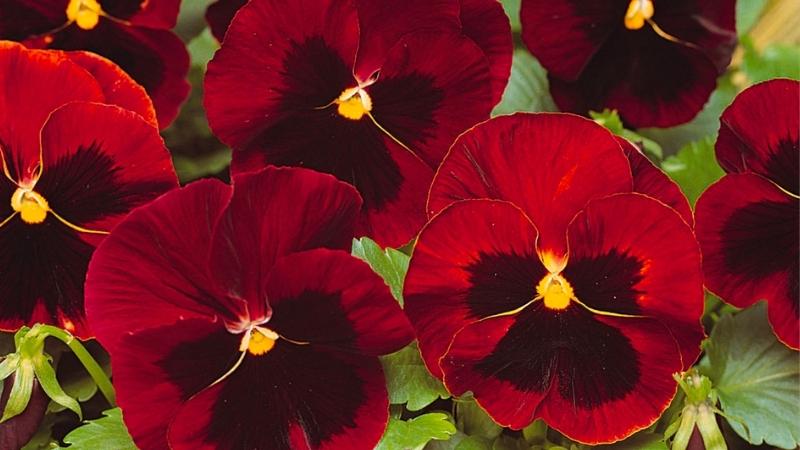 Pansies in Crimson Red
Pansies in Crimson Red
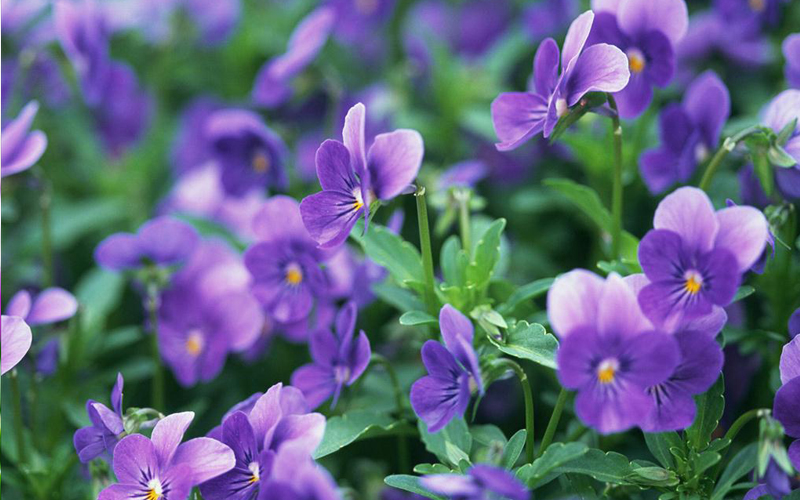 Pansies in Majestic Purple
Pansies in Majestic Purple
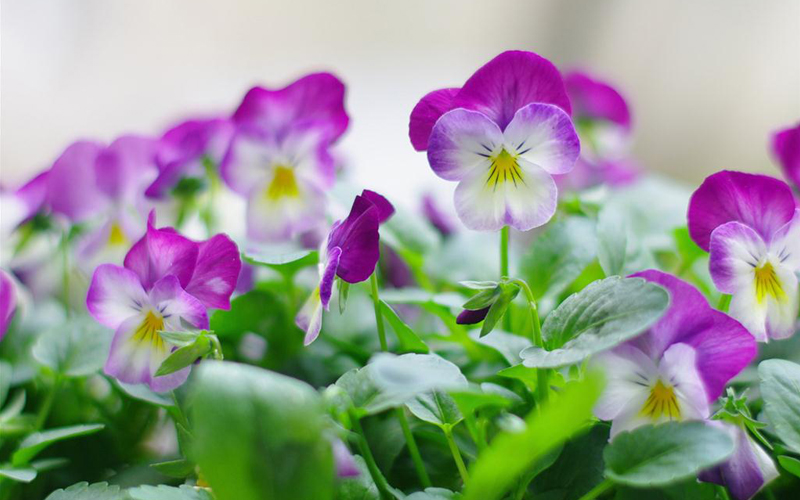 Pansies in Delicate Pink and White
Pansies in Delicate Pink and White
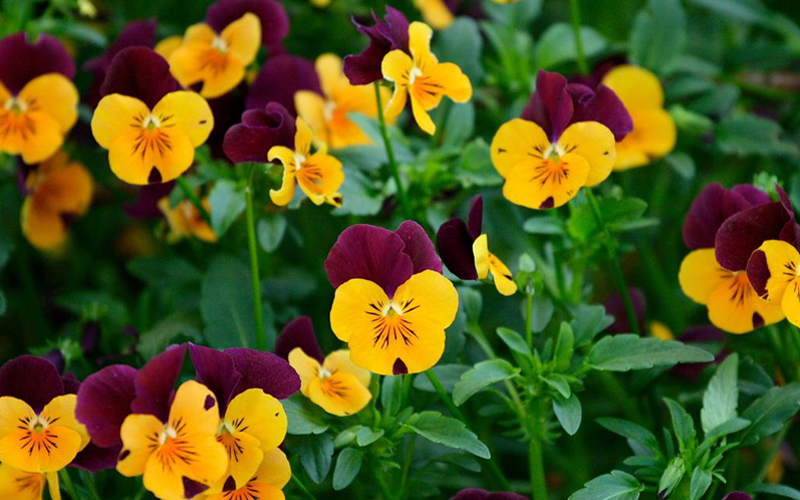 Pansies in Golden Yellow and Purple
Pansies in Golden Yellow and Purple
This concludes our comprehensive guide on the characteristics, symbolism, and cultivation of pansy flowers. We hope you found this information enlightening and that it inspires you to share the beauty of pansies with your loved ones.
































